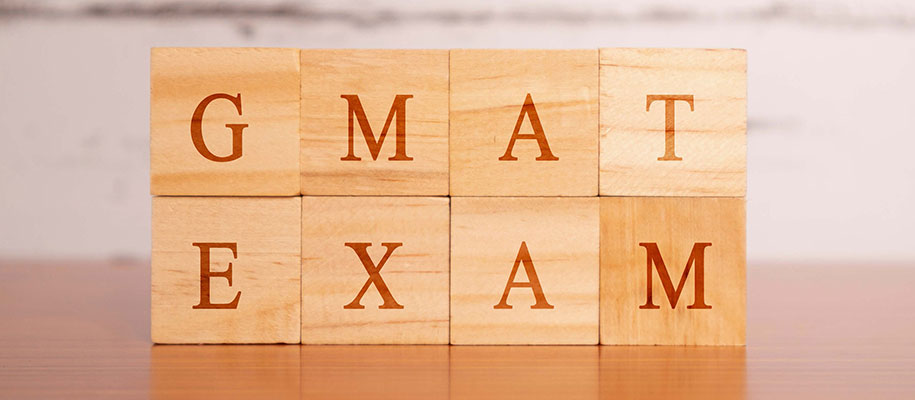Around 6,500 graduate schools use GMAT scores as a critical factor in admission to their programs. With such emphasis riding on a single test, prospective students can easily become overwhelmed by the idea of taking it. But it doesn’t have to be a source of stress if students know how to prepare as effectively as possible. There are a variety of GMAT practice exams available online, as well as resources with testing tips. Simulating the GMAT is extremely helpful, as it prepares students for the question style and topics covered in the test. Washington State University has also created a worthwhile infographic outlining even more helpful GMAT testing tips. Check it out below!
Please note: This infographic was created in 2018; statistics like costs may have changed, but the study tips are evergreen!

via Washington State University
GMAT exam overview
- US business schools created the GMAT exam in 1954 to standardize requirements for entrance exams taken by prospective students of graduate business management master’s programs.
- Furthermore, approximately $250 is needed to cover the three-and-a-half-hour exam, a total of 110 countries accept GMAT scores, and there are 600 official test centers located all across the world. (Update: In most locations, the online version of the GMAT costs $300, while in-person testing costs $275. There are also fees associated with cancellations, rescheduling, etc.).
- The average GMAT score ranges between 540–550, and approximately 50 people achieve a perfect score of 800 each year. These exam results are valid for five years.
10 tips to prepare for the GMAT exam
Each person taking the exam should consider their own learning preferences and skills when assessing these study tips. Setting aside an adequate amount of time to prepare is also essential.
1. Don’t underestimate the importance of communication skills
This section on the GMAT tests your ability to communicate in the business world via emails, press releases, letters, and other forms of business communication. The results of the Qualitative Reasoning and Verbal Reasoning sections are combined, so receiving a high score in one section will be negated if your score in the other section is low. Develop your communication skills by writing practice essays on a variety of subjects.
2. Practice solving data-sufficiency questions
These problems pose a question and then present two statements. Test takers will then be asked whether:
- The statements answer the question
- One statement answers the question
- Both answer in concert
- Both answer independently
- Neither statement answers the question
3. Brush Up on Statistics and Economics
Although the GMAT doesn’t have an economics section, familiarizing yourself with the basic principles can be a big help in understanding and interpreting the business content of the exam.
4. Prepare for computer-adaptive testing
According to the Glossary of Education Reform, computer-adaptive tests “are designed to adjust their level of difficulty—based on the responses provided—to match the knowledge and ability of a test taker.” A great way to prepare for the testing environment is to take a practice exam in a simulated environment. There are many online resources, such as Veritas Prep, that offer simulated computer-adaptive GMAT practice tests.
Related: Improving Your GMAT Score: How to Overcome a Plateau
5. Take advantage of online study resources
Visit the official website of the GMAT exam to access helpful study guides and sample questions. Other online study resources include the Economist GMAT Tutor online program and Veritas Prep online courses.
6. Think conceptually
Throughout high school and college, students are taught to memorize information by reviewing notes from lectures and previous exams. The GMAT tests the ability to apply knowledge, rather than the recollection of knowledge itself. By providing variations of a single problem, the GMAT tests the concept itself, rather than a process or rule for solving a specific type of problem.
7. Consider taking practice exams as an undergraduate
Since many of the GMAT math questions cover theory taught in high school, it may be beneficial to take the test sooner rather than later—for example, during your sophomore or junior year of college. Taking the exam at 20 or 21 years of age results in a score that’s an average of 39 points higher than taking the exam at 22 or 23, according to data from GMAC. College graduates still have a few years to work in the workforce and gain experience before their results expire.
8. Practice using warm-up questions 30 minutes before the exam
Get into a testing mindset by practicing a few easy questions before the exam begins. However, don’t overstrain yourself with warm-up questions covering concepts you have not practiced before the exam.
9. Pace yourself during the exam
As the questions become progressively difficult, it’s important to continue answering the questions methodically. The GMAT covers four sections:
- The Analytical Writing Assessment has a time limit of 30 minutes to complete one essay prompt.
- The Quantitative Reasoning section has 37 questions and a 75-minute time limit; allow yourself two minutes per question.
- The Integrated Reasoning section has 12 multiple-choice questions and a 30-minute time limit; allow yourself no more than two and a half minutes per question.
- The Verbal Reasoning section has 41 multiple-choice questions and a 75-minute time limit; allow yourself one and a half minutes when answering each question.
10. Stay optimistic!
On the day of the GMAT exam, bring an optimistic attitude and stay positive. For the GMAT test taker, an optimistic attitude can significantly influence problem-solving capacity and cognitive responses.
Related: Top 5 Grad School Test-Taking Strategies
Completing the GMAT exam brings prospective WSU online MBA students one step closer to pursuing graduate education. As a top-ranked program by U.S. News & World Report, the WSU online MBA program offers four concentrations as well as a general MBA track to choose from to help align your education with your career goals.
Looking for great schools to earn your advanced degree in Business? Learn more about graduate Business and MBA programs on CollegeXpress!






